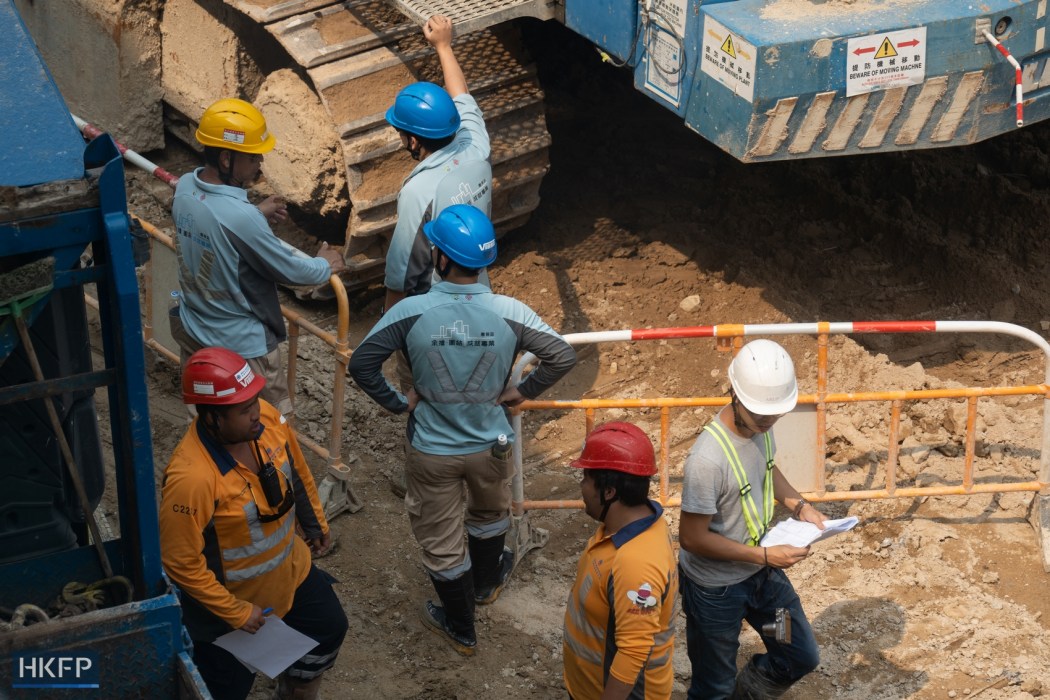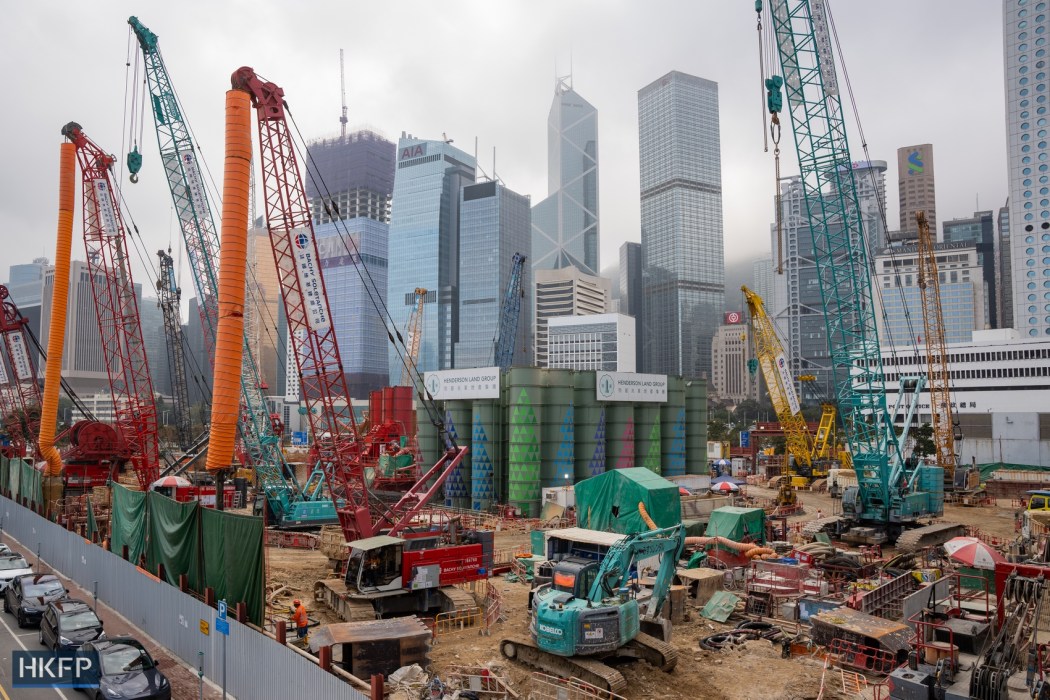Just under 4,000 non-local workers have applied for jobs in Hong Kong’s construction industry, about a third of the quota set for the sector under a labour import scheme intended to alleviate a manpower shortage.
The figure was announced on Wednesday evening, the cut-off date for the first application period. Applications are normally accepted on a quarterly basis in January, April, July, and October.

The construction industry was named alongside the aviation and transport sectors when the government in June approved a plan to import 20,000 workers, despite fears from some worker organisations that the move could drive down local wages or cost Hongkongers their jobs.
In the aviation sector, almost 2,900 applications have been approved, about 45 per cent of the quota ceiling of 6,300 workers. The quota for minibus and coach drivers is 1,700 but the number of applications so far is not known.
A transport industry representative said companies which sent in applications were “testing the waters” before deciding whether to send more workers to Hong Kong.
Higher costs
The Development Bureau said the vetting process for the construction workers was expected to be completed by the end of September, with the first batch of workers arriving by the fourth quarter.

Industry representatives said importing labour would incur additional costs for employers.
Lawrence Ng, chairman of the Hong Kong Construction Sub-contractors Association, told an RTHK program on Wednesday the manpower shortage could not be solved all at once and workers would be joining construction projects at different stages.
Ng said the cost of hiring imported workers would be greater than for locals since employers would have to pay for accommodation and transportation.
He said it was important that the non-local workers, who would be mostly from mainland China, understand site safety requirements, “because the working environment in Hong Kong is somewhat different from that in the Mainland.”
Hong Kong Construction Association executive director Godfrey Leung told local media that importing labour would not stop locals getting jobs as the construction industry was “full of opportunity” given the abundance of development projects planned by the government.
Due process
A union representing building workers in June staged a protest outside Hong Kong’s government headquarters against the move to import workers.

The Hong Kong Construction Industry Employees General Union complained that authorities had bypassed the Labour Advisory Board, which is tasked with vetting applications to bring in overseas workers to ensure Hong Kong workers are first in line for positions.
The union also interviewed 608 construction workers in April and May, saying that 81.3 per cent of respondents disagreed with moves to import labour, whilst 76.8 per cent thought that the policy would lead to local unemployment.
Support HKFP | Policies & Ethics | Error/typo? | Contact Us | Newsletter | Transparency & Annual Report | Apps
Help safeguard press freedom & keep HKFP free for all readers by supporting our team

LATEST FROM HKFP
HKFP has an impartial stance, transparent funding, and balanced coverage guided by an Ethics Code and Corrections Policy.
Support press freedom & help us surpass 1,000 monthly Patrons: 100% independent, governed by an ethics code & not-for-profit.










